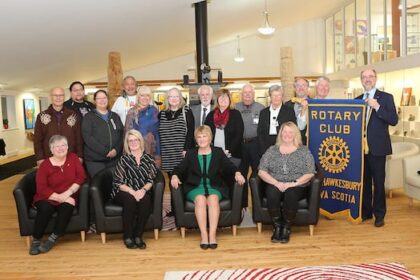This story is a collaboration between the Investigative Journalism Foundation and APTN News, with assistance from students at First Nations University of Canada and University of Regina. Billions of dollars in federal contracts meant to support Indigenous businesses across the country are flowing to two dozen firms in the Ottawa region, a joint IJF investigation has found. Over the last few years, more than 60 per cent of roughly $1 billion in contracts annually intended to boost Indigenous entrepreneurs and their communities have stayed in the capital. Provinces with large Indigenous populations, including Manitoba, B.C., Saskatchewan and Alberta, are largely shut out, according to an IJF analysis of federal data. Indigenous leaders and researchers said the imbalance stems from weak design of the program, the Procurement Strategy for Indigenous Business (PSIB), which is meant to ensure at least five per cent of most federal contracts go to Indigenous-owned companies nationwide, in line with the Indigenous population share of five per cent. They said the PSIB does little to help firms outside Ottawa compete with established suppliers. Shannin Metatawabin, CEO of the National Aboriginal Capital Corporations Association (NACCA), said the findings confirm what Indigenous business owners have long suspected about the program. For the past 30 years, he said, “the Ottawa region has benefited from the majority of [these] procurement contracts.” Indigenous Services Canada, the main department responsible for the PSIB, provided the data used in the investigation and said it has been trying to increase knowledge of the program nationwide. “ISC, via Procurement Assistance Canada, conducts national awareness sessions to encourage Indigenous businesses from across Canada to register,” a spokesperson said. Other efforts include helping Indigenous businesses navigate federal systems and funding Indigenous organizations that can help raise awareness. “The Government of Canada is committed to fostering Indigenous economic development and entrepreneurship,” she added. “The Procurement Strategy for Indigenous Business is central to advancing these objectives — and it’s essential that we get this right. Where changes should be made, we will incorporate adjustments to ensure the strategy delivers meaningful, lasting impact.” The PSIB has drawn increasing scrutiny from Indigenous leaders and researchers. An organization Metatawabin has advocated for is one of several seeking to take over from the federal government the job of determining which companies qualify as Indigenous-owned and -controlled, as the PSIB requires. Discussions about adopting a new system are underway. The competition followed news reports and parliamentary testimony last year describing firms misrepresenting themselves as Indigenous or using false joint ventures to gain access to PSIB contracts. In October, MPs recommended that ISC adopt an Indigenous-led approach to verifying Indigeneity. The investigation’s findings point to regional differences, showing that the program has largely benefitted a small circle of Ottawa-area firms identifying as Indigenous, nearly all of them in IT consulting. By contrast, federal contracts awarded to non-Indigenous businesses are spread across the country, roughly in line with population shares, the IJF found. Business locations were verified using company declarations to Indigenous Services Canada (ISC) and cross-referenced against Treasury Board contracts data, the same source used for non-Indigenous firms. Reviewing the investigation’s findings, Ian Lee, an associate professor of strategy and public policy at Carleton University, said, “Sunshine is the most powerful disinfectant.” While there are few restraints on federal spending power, he said, making any regional differences public gives suppliers across the country a better chance to compete — and lobby for change. The investigation follows decades of efforts by federal officials to expand the program’s reach nationwide, and questions from Indigenous leaders about whether it benefits First Nations, Métis and Indigenous communities. Created in 1996 as the Procurement Strategy for Aboriginal Business (PSAB), the program was set up as the government began digitizing its operations. Ottawa-area IT companies were among the first to win contracts. Questions about local benefits came up almost immediately. “What indirect socioeconomic impacts have been observed at the community and regional level?” a 1999 internal report asked, calling for its performance to be measured on those scales. Year after year, officials tried to attract a wider circle of Indigenous-owned and -controlled businesses. “Across the country, we are talking to Aboriginal businesses about federal procurement opportunities and contracting procedures,” a 2011 instruction manual for civil servants reads. It reminds them, “You have an important role to play” by buying from these businesses. But the PSAB struggled. Less than two per cent of contracts were awarded to Indigenous companies between 2015 and 2018, according to an ISC report, with IT and information management among the top purchasing categories. Officials cited complex federal bureaucracy, Indigenous suppliers’ lack of access to trained employees, roads and internet connections, and the entrepreneurs’ difficulty obtaining financing as key barriers. The program remained under the radar until 2022, when Ottawa renamed it the PSIB and required that five per cent of nearly all federal contracts go to Indigenous companies. More than 1,000 suppliers joined the PSIB and total contracts awarded to Indigenous suppliers jumped from $320 million in 2018 to $1.6 billion in 2022. (ISC did not issue annual reports on the program in the intervening years.) It can be easier for officials to meet the PSIB’s five per cent target by buying in the Ottawa area, said Veldon Coburn, a McGill University associate professor and a member of the Algonquins of Pikwàkanagàn First Nation, speaking from his experience as a former civil servant. “If someone will take $600 million off my hands right away, that’s 60 per cent of my job that’s done,” he said. The joint investigation’s interviews with Indigenous entrepreneurs added nuance to federal reports on the program, indicating they are encountering the same barriers to federal contracting as non-Indigenous businesses — but not often finding a way past them. To understand the PSIB’s impacts, journalism students from First Nations University of Canada and the University of Regina contacted Indigenous federal contractors in Saskatchewan, who received only 1.5 per cent of PSIB contracts in the 2023-2024 fiscal year, though nearly 10 per cent of Indigenous people in Canada live there. Thirteen agreed to interviews. Most identified their First Nations and said federal contracts had provided jobs for their communities. But they described the program as limited and difficult to access. Indigenous Services Canada, headed by Minister Mandy Gull-Masty, provided the data used in this investigation. Photo: APTN. Daryl Wright, a member of Muscowpetung First Nation and owner of Seed 2 Leaf Environmental Consulting, said he had hoped to win more business from Parks Canada but had landed only a few contracts. “There should be more opportunities,” he said, adding he was not able to hire as many workers from First Nations north of Saskatoon when his business didn’t receive contracts or get called up for work after the contract was signed. The PSIB is vital for small Indigenous businesses trying to grow, he said, since most contracts in his sector go to multinationals. The U.S.-owned companies Wright Tree Service, Davey Tree Expert Company and Asplundh are among the leading players. “It destroys entrepreneurship opportunities, and profits flow across the border,” he said. “Hard to imagine a Canadian can’t cut wood.” Non-Indigenous Canadian companies face similar obstacles, according to a recent report from the procurement ombudsman, including entrenched relationships and systems that do not require competitive bidding on smaller contracts. Across Saskatchewan, Indigenous entrepreneurs like Wright received only $14 million in contracts in 2023-2024, in contrast to about $600 million awarded to companies in and around Ottawa. The contracts awarded in Saskatchewan were mostly for “elder services” such as counselling for incarcerated or formerly incarcerated people. That works out to less than $100 in federal business per Indigenous resident, compared with $1,543 across all of Ontario, including the Ottawa area. Support for Indigenous entrepreneurs in the western provinces would begin with a comprehensive provincial inventory of Indigenous suppliers, said Sarain Lafond, executive director of the Saskatchewan Indigenous Enterprise Foundation. Federal employees need to know who to call, he said. The imbalance is particularly stark within Ontario, where more than 90 per cent of the province’s PSIB contracts were awarded to businesses in the Ottawa area in 2023-2024. Outside Ottawa, a computer company based in Burlington, Ont., run by a member of Chippewas of Georgina Island First Nation, accounted for most of the value of federal contracts awarded to 45 businesses in 2023-2024. Some Ottawa-area IT businesses now offer AI services, in line with Prime Minister Mark Carney’s push to expand AI use across government. Without regional safeguards, Coburn said, the federal government’s upcoming surge in spending on major projects could again steer most PSIB spending toward Ottawa-area firms. The program, he said, is “deeply falling short.” With files from Karyn Pugliese – APTN News First Nations University of Canada and University of Regina student contributors: Jacob Bamhour, Gabrielle Barnett, Brittany Boschman, Dalyn Chuckry, Alexander Kozroski, Amanda Leader, Erika Madarash, Desiraye Noname, Eric Stachowich. Special thanks to Dalyn Chuckry for conducting the interview with Daryl Wright. Continue Reading
Canadas Indigenous contracting program funnels billions to Ottawa-area firms

Leave a Comment









